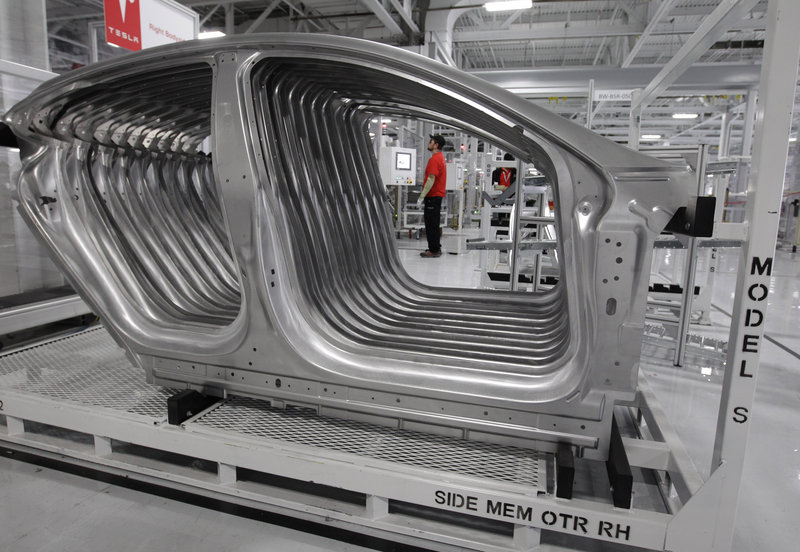WASHINGTON — U.S. manufacturing shrank in June for the first time in nearly three years, adding to signs that economic growth is weakening.
Production declined, and the number of new orders plunged, according to a monthly report released Monday by the Institute for Supply Management.
The slowdown comes as U.S. employers have scaled back hiring, consumers have turned more cautious, Europe faces a recession and manufacturing has slowed in big countries like China.
“This is not good,” said Dan Greenhaus, chief economic strategist at BTIG, an institutional brokerage. Though the report “does not mean recession for the broader economy, it is still a terribly weak number.”
The trade group of purchasing managers said its index of manufacturing activity fell to 49.7. That’s down from 53.5 in May. And it’s the lowest reading since July 2009, a month after the Great Recession officially ended. Readings below 50 indicate contraction.
Economists said the manufacturing figures were consistent with growth at an annual rate of 1.5 percent or less. That would be down from the January-March quarter’s already tepid annual pace of 1.9 percent.
“Our forecast that the U.S. will grow by around 2 percent this year is now looking a bit optimistic,” said Paul Dales, an economist at Capital Economics.
Despite the discouraging data, most economists aren’t predicting another recession. Though the ISM report suggests manufacturing is contracting, it typically takes a sustained reading below 43 to signal the economy isn’t growing.
Still, U.S. manufacturing, which has helped drive growth since the recession ended, is faltering at a precarious time.
Americans have pulled back on spending, which drives roughly 70 percent of growth. Europe’s economy is likely in recession, which has hurt U.S. exports.
And China’s manufacturing sector grew in June at its slowest pace in seven months, according to a survey released Sunday by the state-affiliated China Federation of Logistics and Purchasing.
Manufacturing will likely stay weak for the next few months. The ISM’s gauge of new orders, a measure of future activity, plunged from 60.1 to 47.8. That’s the first time it has fallen below 50 since April 2009, when the economy was still in recession.
Fewer new orders reflect growing concerns of businesses. In addition to slower global growth and less spending by U.S. consumers, many worry that U.S. lawmakers won’t extend a package of tax cuts at the end of the year.
Bricklin Dwyer, an economist at BNP Paribas, said the uncertainty “has left businesses unwilling to invest.”
Copy the Story Link
Send questions/comments to the editors.



Success. Please wait for the page to reload. If the page does not reload within 5 seconds, please refresh the page.
Enter your email and password to access comments.
Hi, to comment on stories you must . This profile is in addition to your subscription and website login.
Already have a commenting profile? .
Invalid username/password.
Please check your email to confirm and complete your registration.
Only subscribers are eligible to post comments. Please subscribe or login first for digital access. Here’s why.
Use the form below to reset your password. When you've submitted your account email, we will send an email with a reset code.